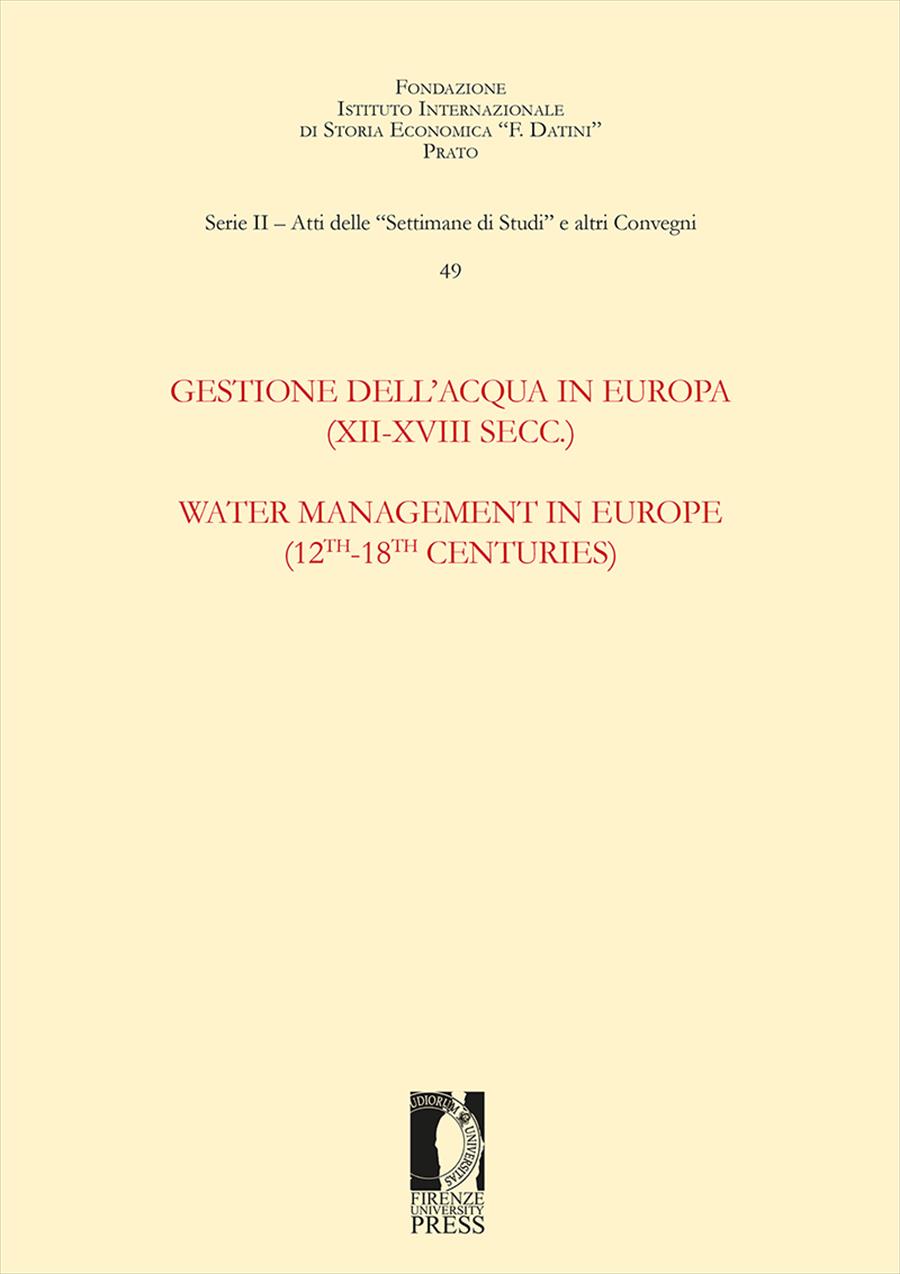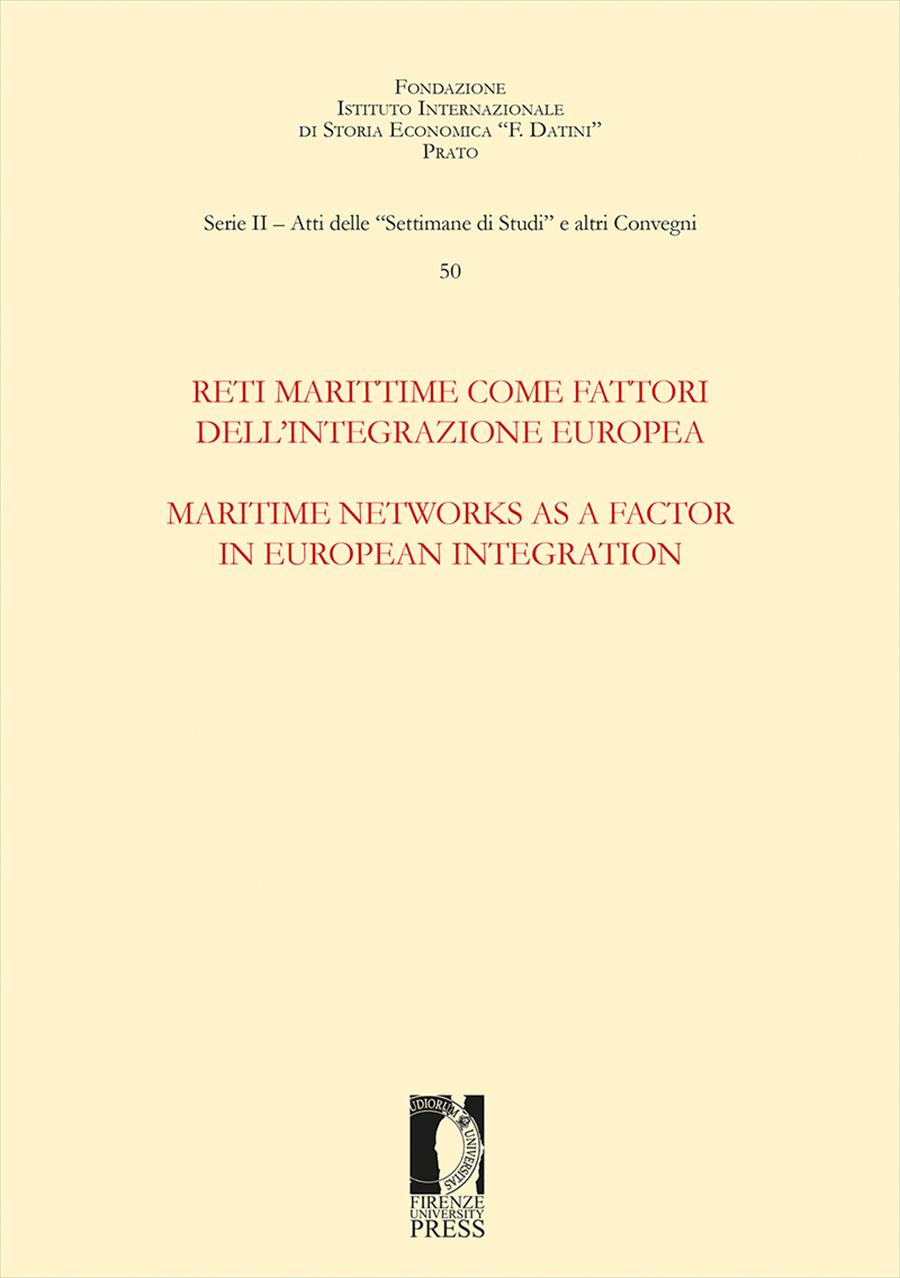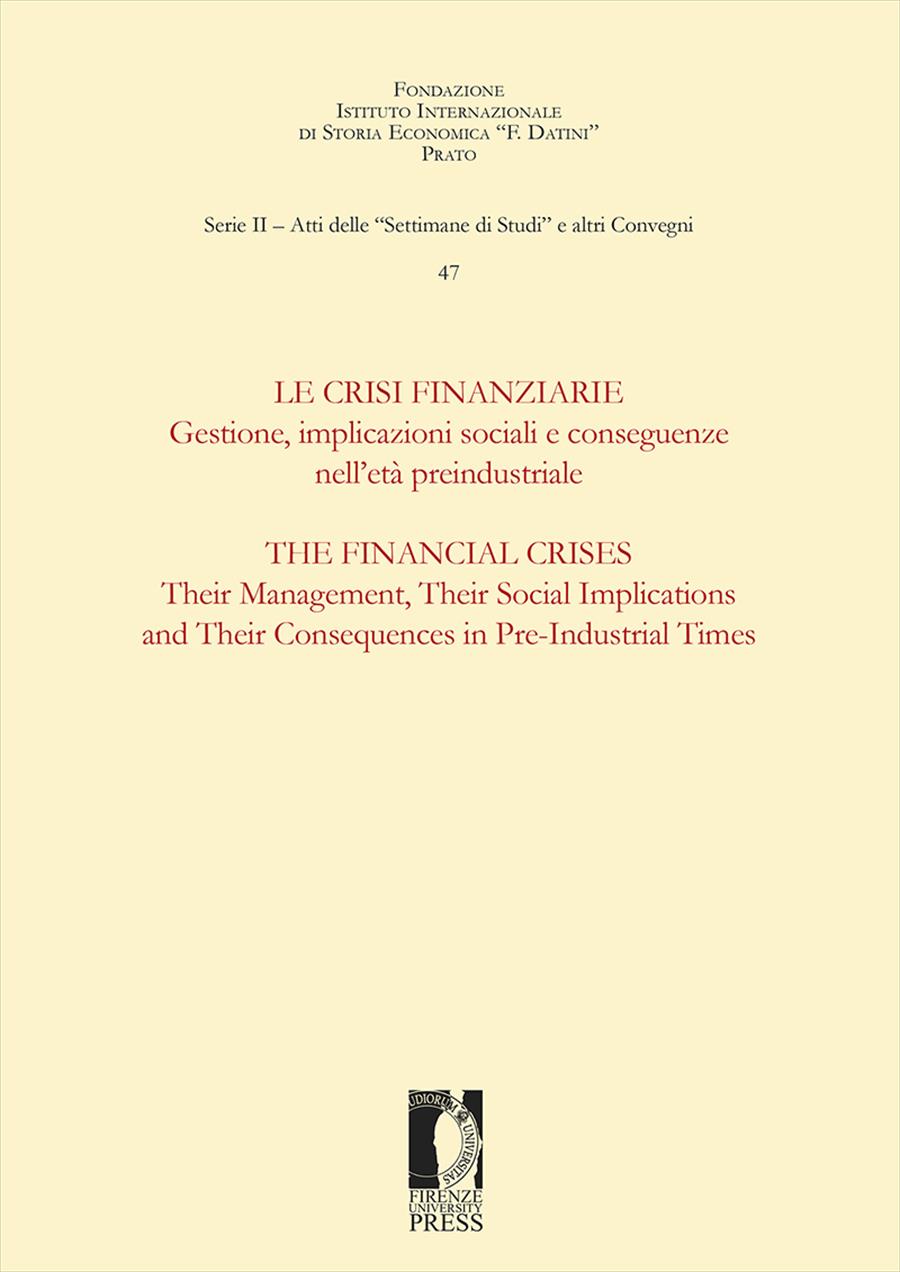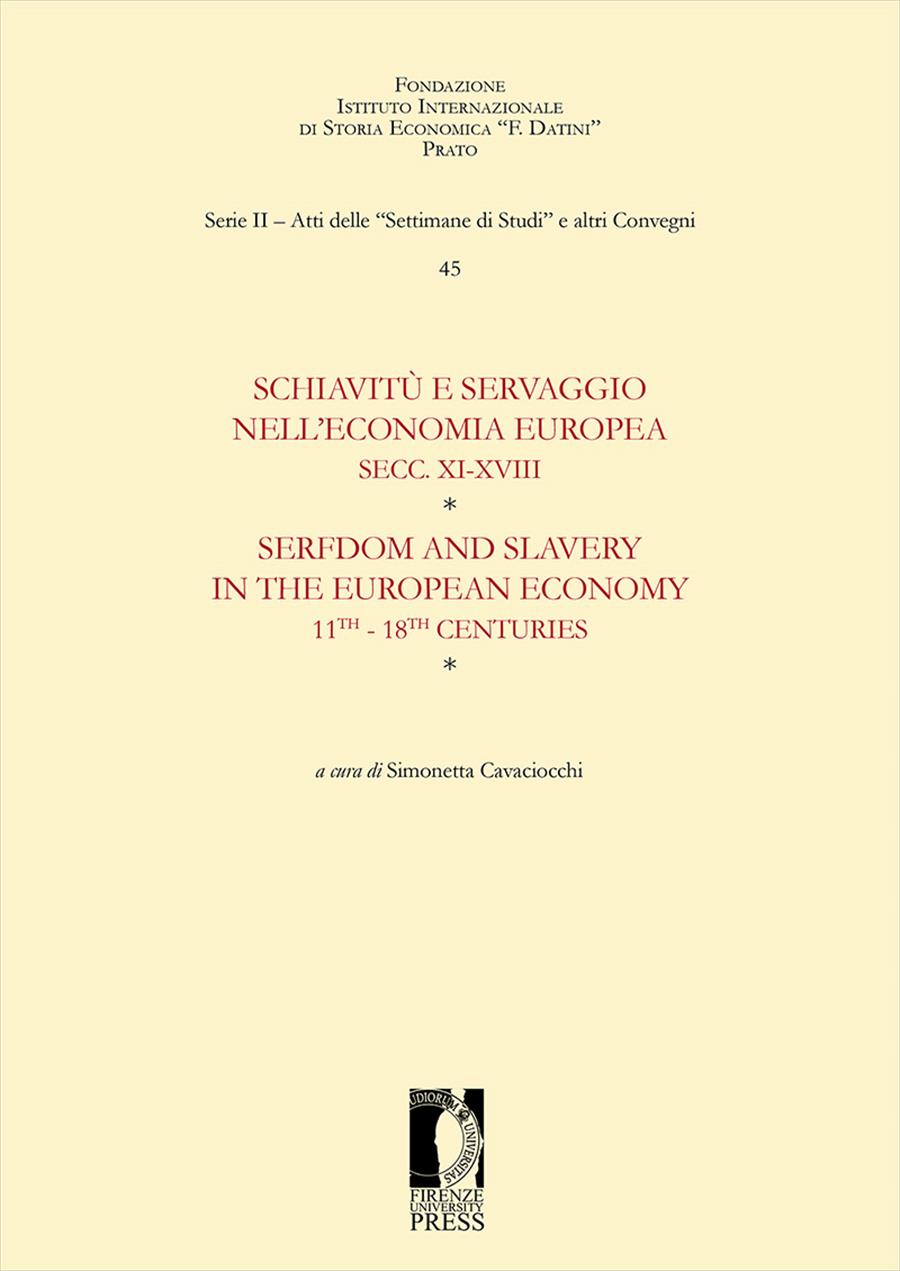Gestione dell'acqua in Europa (XII-XVIII Secc.) / Water Management in Europe (12th-18th centuries)
- Edited by:
- Giampiero Nigro,
Water was a source of wealth which facilitated, fostered or brutally halted economic development in the Ancien Regime. Lack of hygiene meant that water was used less for drinking than other drinks, but as a raw material, source of energy, cooling, rinsing and cleansing agent, water was unequalled. It played a role in public and private relaxation and in health. Water also proved to be an ideal, safe and cheap means of transporting goods and ideas. Urban historians have long pointed to the enormous comparative advantage enjoyed by towns and regions whose favourable maritime or riverine location gave them access to cheap water-borne transport. But water just as often posed a threat to economic development and prosperity, whether due to its absence or its specific composition or level of pollution or to uncontrollable abundance. This duality is still present today in our modern, globalised society. While huge quantities of fresh, potable water are wasted in the West, free or cheap access to fresh and abundant water supplies remains a major challenge for millions of individuals on the planet. Major floods in different parts of the world regularly cause economic damage and endless human suffering.
With a Settimana devoted to the management of the water supply, excluding related topics as water consumption, water transport and the use of water in agriculture and industry, the Istituto Datini is seeking to draw attention.
- DOI: 10.36253/978-88-6453-700-9
- Series: Atti delle «Settimane di Studi» e altri Convegni
- Scientific Board: Fondazione Istituto Internazionale di Storia Economica «F. Datini»
- Language: Italian, English
- Subjects: Economic History
Purchase
University of Florence, Italy - ORCID: 0000-0002-1008-1153
- Publication Year: 2018
- Pages: 472
- eISBN: 978-88-6453-700-9
- Content License: CC BY-NC-ND 4.0
- © 2018 Author(s)
- Publication Year: 2018
- Pages: 472
- ISBN: 978-88-6453-699-6
- Content License: CC BY-NC-ND 4.0
- © 2018 Author(s)
- Publication Year: 2018
- eISBN: 978-88-9273-106-6
- Content License: CC BY-NC-ND 4.0
- © 2018 Author(s)
Bibliographic Information
Book Title
Gestione dell'acqua in Europa (XII-XVIII Secc.) / Water Management in Europe (12th-18th centuries)
Editors
Giampiero Nigro
Peer Reviewed
Number of Pages
472
Publication Year
2018
Copyright Information
© 2018 Author(s)
Content License
Metadata License
Publisher Name
Firenze University Press
DOI
10.36253/978-88-6453-700-9
ISBN Print
978-88-6453-699-6
eISBN (pdf)
978-88-6453-700-9
eISBN (xml)
978-88-9273-106-6
Series Title
Atti delle «Settimane di Studi» e altri Convegni
Series ISSN
2704-6354
Series E-ISSN
2704-5668





